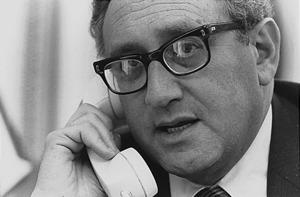First Posted at Forbes on 12/18/2012
First Posted at Forbes on 12/18/2012
When Homer Warner first started using computers in a hospital, the computers were analog and the house call was state-of-the-art. Although Warner had some extraordinary contemporaries, his work more than anyone else’s directly translated into innovations that still exert a profound influence on everyday care.
Warner died in Salt Lake City on Nov. 30 at age 90; his obituary in the New York Times appeared in print a couple of weeks later. Being a pioneer was in Warner’s blood: his great-grandfather trekked westward with Brigham Young and the original group of Mormon settlers who fled to Utah to avoid religious persecution. In his youth, Warner worked at a lumber camp, on a railroad and on a farm, played quarterback at the University of Utah and trained as a World War II fighter pilot, though he never saw action. He followed up those activities by becoming a cardiologist and earning a doctorate in physiology.
Warner teamed up with engineers at Latter-Day Saints (now LDS) Hospital in the mid-1950s as they began assembling what they called a “circuit.” Said Warner later, “I didn’t even know it was a computer.” Within a few years, however, a more sophisticated machine was providing real-time readings of heart surgery patients’ blood pressure, cardiac output and heart rate with a speed and accuracy no nurse taking the same measurements manually could match.
By the late 1960s, with digital technology, Warmer and his colleagues had invented the kind of monitoring systems that today are the standard in intensive care units across the world. Soon after, he turned his attention to developing a computer that could not just monitor clinical data but interpret it in a way that would help physicians choose the most effective treatment.
I interviewed Warner in 1995 for my book, Demanding Medical Excellence: Doctors and Accountability in the Information Age. He told me the computer system was originally given the friendly moniker HELP to emphasize its role as a physician’s assistant to doctors threatened by an automated second opinion. (IBM Watson, take note!) The name was later turned into an acronym for Health Evaluation through Logical Processing.
By 1972 the LDS computer could interpret blood gas results and electrocardiograms. By 1975, a year before two college dropouts incorporated a company they called Apple Computer, three-quarters of all prescription orders at LDS Hospital were being entered into a computer terminal. It was one of the first, and certainly one of the most extensive, electronic medical records.
Warner’s disciples continued to innovate. Their success by 1990 in using decision support to dramatically reduce adverse drug reactions led directly to the call for widespread adoption of computerized physician order entry. It also fueled the “paper kills” campaign by former House Speaker Newt Gingrich that helped build bipartisan support for the HITECH Act of 2009 and its multi-billion dollar grant program designed to spur hospitals’ use of health information technology.
One might reflect on how timid our “meaningful use” requirements truly are on the cusp of 2013 in light of this headline from the Wall Street Journal in 1959: “Electronic Medicine: Scientists Press Work on Advanced Machines to Aid Medical Care. They See Automatic Nurses Watching Sick, Computers Helping Diagnose Illnesses.”
Homer Warner was a founder of biomedical informatics, the progenitor of a multi-billion dollar industry now dominated by companies like Epic, Cerner,IBM and General Electric and a role model for ensuring that path-breaking research is consistently implemented in actual patient care. He was a man, said the Salt Lake Tribune obit, who had “the mind of an intellectual and the soul of an adventurer.”
The post The Man Who Brought Computers Into Medicine appeared first on The Doctor Weighs In.






